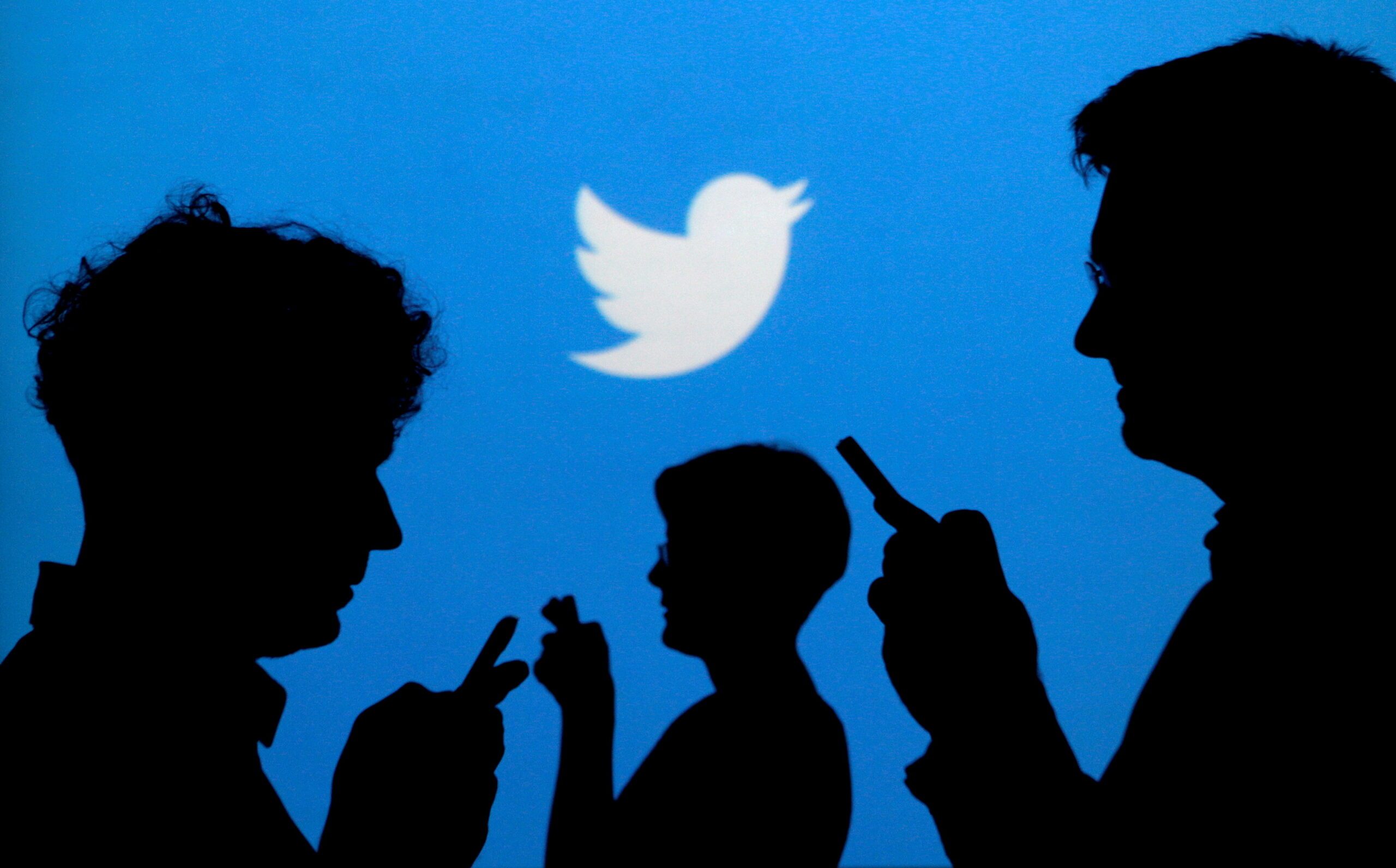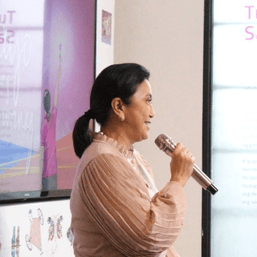SUMMARY
This is AI generated summarization, which may have errors. For context, always refer to the full article.

MANILA, Philippines – Vice President and presidential aspirant Leni Robredo, as well as members of the opposition, were the focal points of election-related chatter on Twitter from May to October 2021, a study on the Philippines’ election digital landscape found.
Meanwhile, a network of accounts interacting with presidential aspirant Ferdinand “Bongbong” Marcos Jr. emerged as a distinct group from August to October 2021 despite “being virtually absent from May to July 2021,” the study said.
These findings were announced during a presentation on Wednesday, January 19, of the second report of the Digital Public Pulse (DPP) project, a study conducted by the Philippine Media Monitoring Laboratory to track behavior on social media platforms in relation to the 2022 elections.
The researchers looked into Twitter data from May to October 2021, classifying May to July as Quarter 1 and August to October as Quarter 2. Their findings were based on 2,135,339 tweets that contain specific election-related keywords.
From Quarter 1 to Quarter 2, the study found that Robredo, as well as other members of the opposition, were focal points of the biggest cluster of election-related tweets on the social media platform. The cluster is composed of users who were either supportive of, or antagonistic toward, Robredo and the opposition.
Among the prominent opposition figures who were found as focal points in the cluster were human rights lawyer Chel Diokno and the 1Sambayan coalition.
The actors participating in election-related chatter on Twitter were classified into the following: news media, entertainment media, politicians and government offices, civil society, other affiliations, influencers and content creators, ordinary users, private users, and obscure accounts.
The study said that politicians, in general, are the center of election-related talk on Twitter. Other aspirants who were observed to be also gaining ground were Senators Manny Pacquiao and Vicente “Tito” Sotto III.
Meanwhile, news media tend to be a secondary driver of electoral discourse on the platform despite having a big community of actors in both quarters. The researchers said they were mostly detached from other clusters in the network – a similar observation in the DPP project’s first report.
Zooming into Quarter 2, the researchers found that an emerging network aligned with Marcos eventually overtook that of Robredo and the opposition as of October 2021. Unlike the Robredo cluster, the Marcos network was mostly composed of accounts that support Marcos and are aligned with President Rodrigo Duterte and the government media.
The study noted that in Quarter 2, the top topics pushed by the Marcos network included support for the Marcoses’ return to Malacañang and Marcos’ own content that he shared in his vlogs.
In contrast, the main topics found in the Robredo cluster were more diverse in sentiment, which included support for Robredo’s tandem with Senator Francis “Kiko” Pangilinan, attacks against Robredo and the “kakampinks,” and presidential aspirant Isko Moreno’s tirades against Robredo’s motivation for running in the 2022 presidential election.
This finding is in line with Rappler’s own investigation that found an emerging Marcos network trying to take over Twitter with newly-created accounts. Data from the investigation showed that the network uses accounts mostly created in October 2021 to promote the dictator’s son and attack critics in the lead-up to elections.
Rise of obscure accounts
The DPP study also noted a rise in the activation of obscure accounts that participated in election discourse on the platform, particularly in Quarter 2.
The researchers characterized obscure accounts into three: “unidentifiable” or accounts that had no evident personal information, “suspended” accounts by Twitter, and “inexistent” or those accounts that could not be scanned anymore because they either made their profiles private or deleted them.
By Quarter 2, obscure accounts have overtaken the mainstream news media in influence, in terms of the volume of retweets, mentions, and replies received from other users.
The study said obscure accounts “have always been more active” participants of election talks compared to other actors, but they also became more active in retweeting, mentioning, and replying to other accounts in Quarter 2.
“The activation of obscure Twitter actors may be part of coordinated campaigns and tactics that can manufacture and mislead electoral discourse,” the study said, but DPP’s co-lead Jon Benedik Bunquin said that this finding warrants a deeper investigation.
The Philippine Media Monitoring Lab is a consortium of researchers in the fields of communication, political science, and data science. The DPP project is co-led by Bunquin and Marie Fatima Gaw, both assistant professors from the University of the Philippines Diliman’s Communication Research department.
The DPP identifies dominant personalities, organizations, topics, and issues emerging online in the lead-up to the 2022 elections. The first report about YouTube was released on January 12, and a subsequent report on Facebook will be presented on January 26. – Rappler.com
Add a comment
How does this make you feel?










![[New School] Tama na kayo](https://www.rappler.com/tachyon/2024/02/new-school-tama-na-kayo-feb-6-2024.jpg?resize=257%2C257&crop=290px%2C0px%2C720px%2C720px)





![[In This Economy] Marcos’ POGO ban is popular, but will it work?](https://www.rappler.com/tachyon/2024/07/thought-leaders-marcos-pogo-ban.jpg?resize=257%2C257&crop=255px%2C0px%2C720px%2C720px)
![[Rappler Investigates] POGOs no-go as Typhoon Carina exits](https://www.rappler.com/tachyon/2024/07/newsletter-graphics-carina-pogo.jpg?resize=257%2C257&crop=424px%2C0px%2C1080px%2C1080px)





![[Newspoint] A fighting presence](https://www.rappler.com/tachyon/2024/07/thought-leaders-a-fighting-presence.jpg?resize=257%2C257&crop=441px%2C0px%2C1080px%2C1080px)
![[Closer Look] ‘Join Marcos, avert Duterte’ and the danger of expediency](https://www.rappler.com/tachyon/2024/06/TL-trillanes-duterte-expediency-june-29-2024.jpg?resize=257%2C257&crop_strategy=attention)

![[OPINYON] Tungkol sa naging viral na social media conjecture](https://www.rappler.com/tachyon/2024/07/thought-leaders-conjecture-07262024.jpg?resize=257%2C257&crop_strategy=attention)
![[DECODED] The Philippines and Brazil have a lot in common. Online toxicity is one.](https://www.rappler.com/tachyon/2024/07/misogyny-tech-carousel-revised-decoded-july-2024.jpg?resize=257%2C257&crop_strategy=attention)


There are no comments yet. Add your comment to start the conversation.